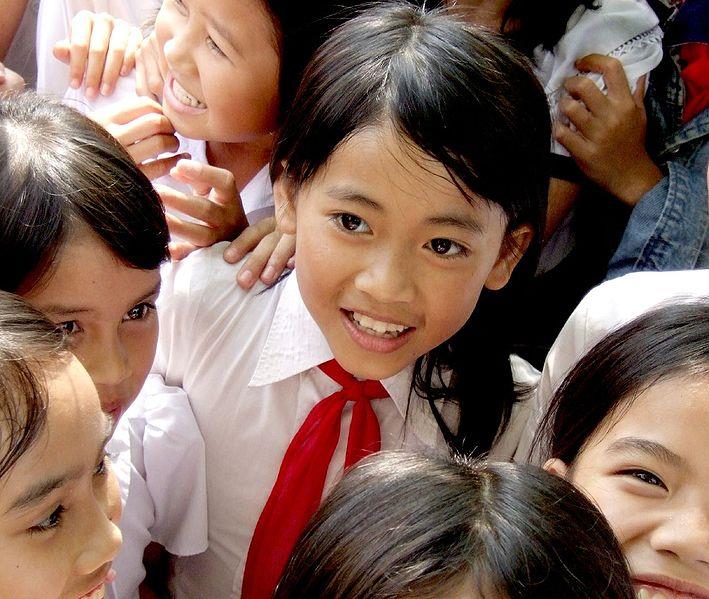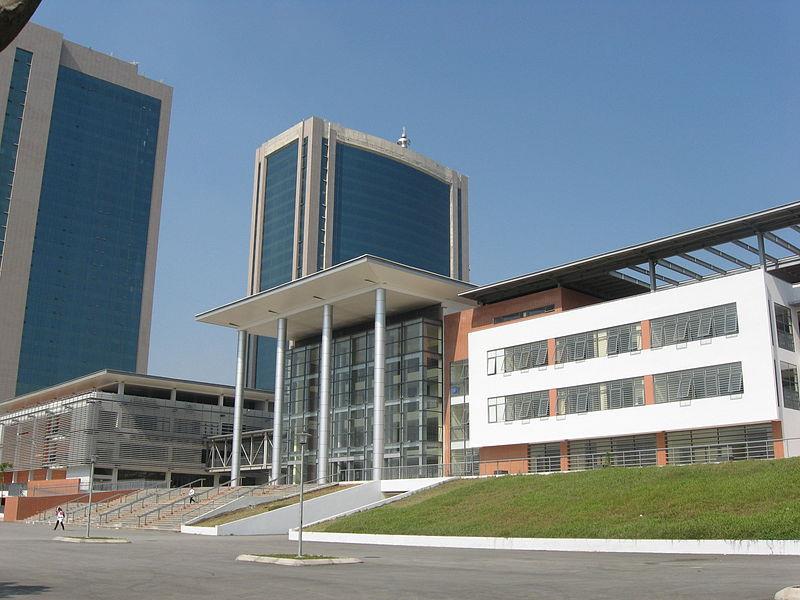Education in Vietnam is always a field that attracts the most attention of authorities and the public as well. In the period of war, the government has emphasized the importance of education by opening night-classes for the poor. The educational law has experienced several changes to reach the complete one in 2005 to provide the legal framework for the development of education system in Vietnam. As committed to UNESCO’s Education, Vietnam has achieved outstanding progress in improving access to basic education especially universal education.
The Vietnam universal education system consists of two main stages: pre-primary education with nursery and kindergarten and general education with primary education, lower secondary education and upper secondary education.

Pre-primary: nursery and kindergarten are for children aged 3 to 6 years old with the aim of forming children’s thinking. In this period, children are taught to create good habits and behaviors.
General education: general education in Vietnam lasts 12 years and is divided into 3 levels: Level 1 or primary, level 2 or secondary and level 3 or high school.
Primary starts when children are 6 years old and finishes when they are 11 years old. It consists of 5 smaller levels from grade 1 to grade 5 and is compulsory for all people. Pupils have to attend following subjects: Math, Vietnamese, Nature and Society (grade 1, 2, 3), Science (grade 4, 5), Geography (grade 4, 5), Music, Art, Ethics, physical education, Information Technology and English.
Secondary consists of 4 levels from grade 6 to grade 9. In secondary school, students have to learn Literature alternative for Vietnamese, Physics and Chemistry for Nature and Society. Finishing secondary level, students are graduated on the basis of academic achievement during 4 years. To continue the higher level, students are obliged to attend the important entrance exam.
High school level consists of 3 levels: from grade 10 to grade 12. The entrance exam to high school is organized annually by the Vietnam Ministry of Education and Training. In high school, students study subjects similar to that of secondary school but dropping out 2 talented subjects Music and Art. However, students have the opportunity to participate in other activities like vocational guidance and vocational training.

Schools in the Vietnamese universal educational system are organized in 3 main forms: public schools, semipublic schools and private schools. Although having gaining some remarkable achievements with the primary enrollment rate of nearly 100%, there are still challenges to overcome to make Vietnamese educational system correlative to international standard.
The main objective of Vietnam education is improving citizens’ general knowledge, training quality human resources, nurturing and fostering talents. Vietnam is currently trying to strongly reform its education system, aiming to prepare students for the increasing role of English as an official language of business, and the importance of internationalizing the education system to sustain the rapid economic growth.
With its great efforts, Vietnam has achieved many steady progresses in education in recent decades. In 1945, the illiteracy rate was 95% and yet just a year later, 2.520.678 people escaped this situation. In 2000, illiteracy was completely eliminated and secondary education was universalized. In 2010, universalizing junior high school was completed. Currently, more and more educational reforms are implemented.
In recent years, in the global integration, there have appearances of a number of foreign-invested institutions and international schools in Vietnam, serving the needs of expatriates and upper class. They offer high quality education with foreign or foreign-trained instructors. The syllabus and teaching quality can match that of the international counterparts. They have been contributing in no small part in the development of Vietnam national education.
